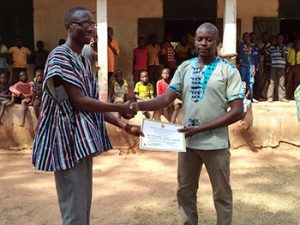Welcome to the January 2015 issue of the Global Washington newsletter.
IN THIS ISSUE
Letter from our Executive Director
I hope you enjoyed a break during the holiday season to re-energize for your work in the new year. The Global Washington board and staff are excited for what’s to come as we continue to build on the energy and momentum gained from our annual conference this past December. The insightful conversations and thought leadership will form the content of our 2015 activities, including a series of events, workshops and publicity campaigns around topics such as new funding models, cultural competency in program design, effective NGO and business partnerships, storytelling, advocacy and more. We’ll also have our 2nd annual Spring Member Celebration (date TBA), and save the date for our 7th Annual Conference on December 10, 2015!
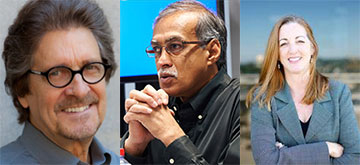
Dan O’Neill, Akhtar Badshah, Melissa Merritt
I’m also thrilled to announce that we have three new board members: Dan O’Neill, Founder of Mercy Corps; Akhtar Badshah, formerly of Microsoft; and Melissa Merritt, Vice President at Waldron. All bring unique expertise and deep commitment to promote and support the global development community in Washington state.
We’ll kick off our 2015 event series on February 5 spotlighting Women Leaders in Philanthropy, including Sandra Archibald of the UW Evans School of Public Affairs, Renee Kaplan from the Skoll Foundation, and Rosario Perez from Pro Mujer. This event is co-hosted by Waldron and will be moderated by Global Washington’s new board member, Melissa Merritt. I hope you can join us in February.
All my best to you as you begin the new year!
Sincerely,

Kristen Dailey
Executive Director
Back to Top
Question of the Month
 GlobalWA will ask you a question every month and synthesize the responses and make available to our member organizations. Please take a moment to respond to the question for this month:
GlobalWA will ask you a question every month and synthesize the responses and make available to our member organizations. Please take a moment to respond to the question for this month:
Did you notice globalwa.org’s new look? Tell us what you think of the new web design. All feedback is appreciated.
Please click here to leave feedback.
Back to Top
GlobalWA on the Ground
Spreeha Foundation
By Holly Koch
This is the third in a series of articles written by the Adventure in Focus duo. While traveling throughout Southeast Asia, AIF is documenting the projects of several GlobalWA member organizations that are working on the ground in the region. Holly submitted this article from Bangladesh, while working with the Spreeha team.
For those who have never visited Bangladesh, what they know of the country is likely limited to the sparse media coverage of a devastating string of garment factory disasters. For travelers who have had the opportunity to ride in one of the 400,000 rickshaws that weave chaotic paths through Dhaka, the capital and largest city in Bangladesh, they may know of the country’s extreme human suffering.
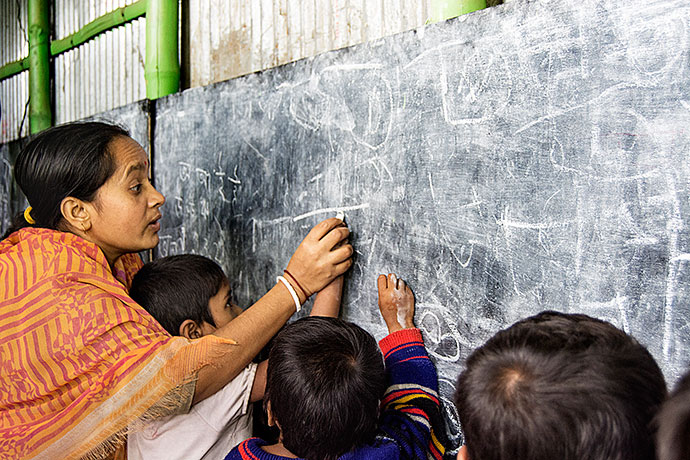 For those who have had the opportunity to see the work of Spreeha Foundation, however, what they know is that these things are only a portion of the true Bangladesh.
For those who have had the opportunity to see the work of Spreeha Foundation, however, what they know is that these things are only a portion of the true Bangladesh.
To walk through the slums of the world’s most densely populated city is to wade through suffocating air pollution, to breathe the smoke of burning trash, to dodge vehicles powered by both man and machine, and to tiptoe around human sewage.
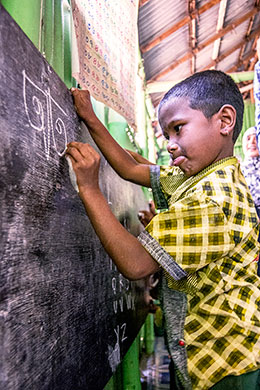 Amongst this in Mohammadpur, however, are countless laughing children running through crowds like streaks of light, many of whom are on their way to Spreeha.
Amongst this in Mohammadpur, however, are countless laughing children running through crowds like streaks of light, many of whom are on their way to Spreeha.
The children run up steps and pass the Spreeha clinic on the first floor. During the majority of business hours, this clinic is packed with patients — women receiving maternal care, children receiving vaccinations, and treatment for malnutrition prevention. While the clinic and its labs are simple, it has become a well-oiled machine in order to accommodate approximately 500 patients weekly. Many of the services are free, and the pharmacy offers half-price medications.
“Healthcare alone is not enough,” said Spreeha Founder Tazin Shadid, which is why in recent years the organization has expanded its services. The second floor is home to the education department that coordinates classes for three-to-five year-olds in four preschools throughout the community.
“Our primary goal is to make students love school,” said Saifuzzaman Rana, Spreeha’s Head of Education. “We want to get them laughing and having fun while learning to read and write.”
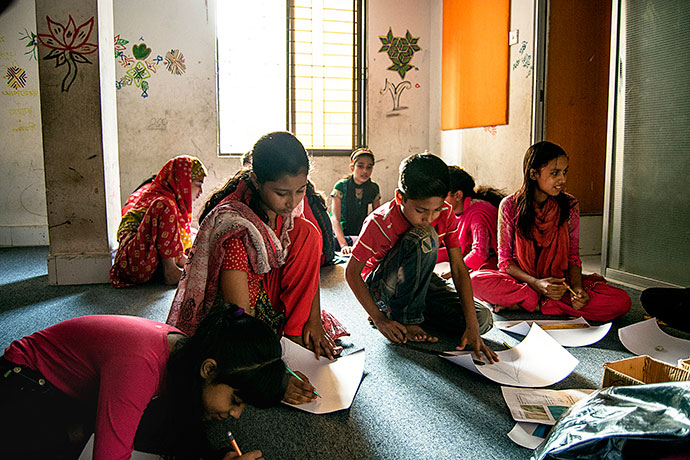 Spreeha also offers afterschool classes to enrolled students. Many of these classes are taught by older students who are moving into their Higher Secondary Certificate curriculum (the equivalent of eleventh and twelfth grade).
Spreeha also offers afterschool classes to enrolled students. Many of these classes are taught by older students who are moving into their Higher Secondary Certificate curriculum (the equivalent of eleventh and twelfth grade).
In addition to providing children with the opportunity to enter and complete mainstream education, Spreeha is also dedicated to empowering community members through skills training, including sewing classes, computer instruction, and an adolescent girls club which gets girls talking about their physical changes, their rights, early marriage, and their hopes for the future. Of Spreeha’s emphasis on the empowerment of girls, Shadid said, “We want them to be the changemakers in their communities.”
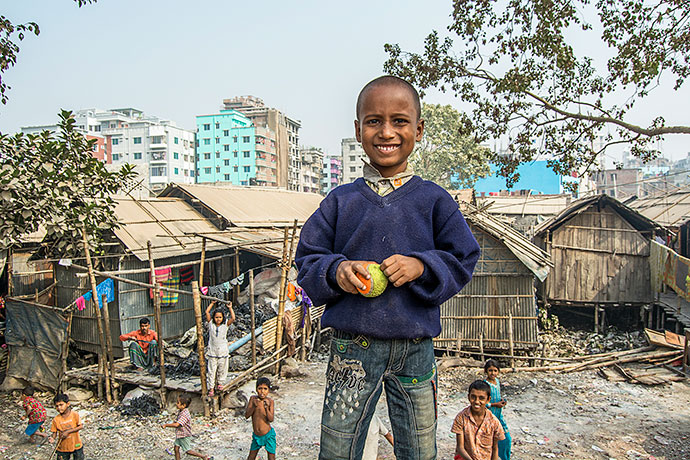 Spreeha has worked hard to integrate itself into the community. Part of its approach has been to model itself after the Lean Startup Method that emphasizes flexibility and adaptability, which are essential to development work of this nature. After witnessing children race each other up Spreeha’s front steps each day, it is obvious that the organization has cultivated a safe and positive environment for community members.
Spreeha has worked hard to integrate itself into the community. Part of its approach has been to model itself after the Lean Startup Method that emphasizes flexibility and adaptability, which are essential to development work of this nature. After witnessing children race each other up Spreeha’s front steps each day, it is obvious that the organization has cultivated a safe and positive environment for community members.
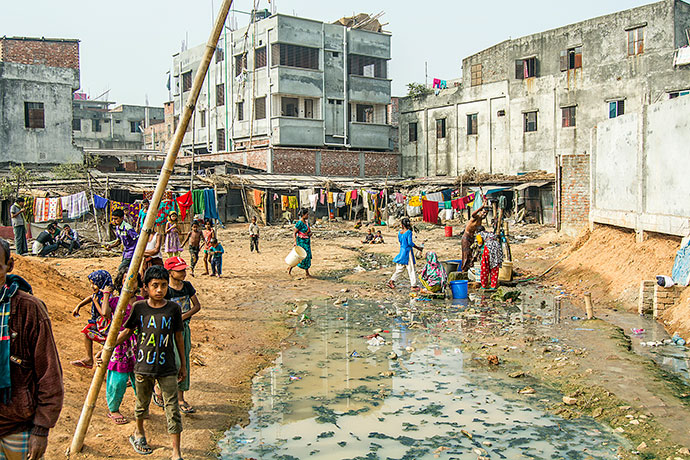 To spend time with the students of Spreeha is, to put simply, inspiring. Despite the fact that most of them have only known extreme poverty, their dreams go far beyond those of their circumstances. When asking a group of girls about their career goals, we heard: doctor, teacher, engineer, photojournalist, police officer and politician.
To spend time with the students of Spreeha is, to put simply, inspiring. Despite the fact that most of them have only known extreme poverty, their dreams go far beyond those of their circumstances. When asking a group of girls about their career goals, we heard: doctor, teacher, engineer, photojournalist, police officer and politician.
Of this, program officer Riyadul Haque said with a smile, “This is the success of Spreeha.”
Back to Top
Featured Organization
Marine Stewardship Council
By Charlotte Dawkins
When you consider that twenty-nine percent of the world’s oceans are being overfished, consuming sustainably fished seafood is becoming increasingly important. Commitments being made by seafood producers, retailers and consumers alike to source or purchase sustainable seafood are resulting in improvements to fishing practices which protect the health of fish stocks and the marine environment, as well as the livelihoods of fishing communities.
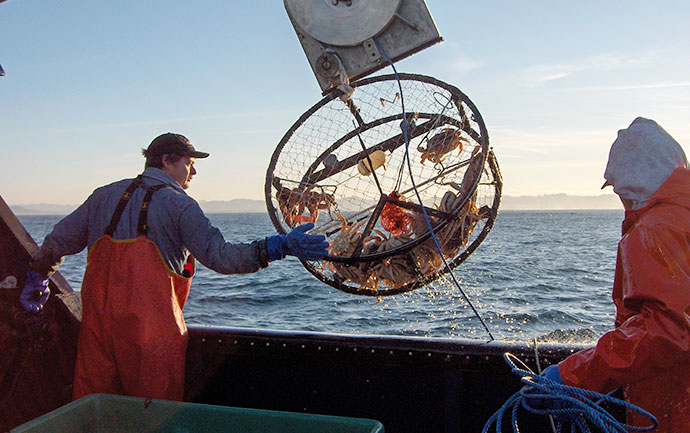
Oregon Dungeness Crab Commission
The Marine Stewardship Council (MSC), an international nonprofit organization and Global Washington member, operates a program that uses robust standards and advanced scientific knowledge to help consumers and buyers make informed decisions when purchasing seafood. Wild-capture fisheries that meet its sustainable fishing standard are rewarded with the ability to use MSC’s widely accepted ecolabel. Its fisheries standard is based on three principles: sustainable fish stocks, minimizing environmental impact, and effective management. The MSC also has a Chain of Custody (CoC) standard for companies in the supply chain which ensures commercial buyers and consumer seafood sold with the MSC ecolabel can be traced through the supply chain back to a certified sustainable fishery.
Because MSC certification is recognized as global best practice, an increasing number of fisheries worldwide are seeking to become certified. Over ten percent of global wild-caught seafood now comes from fisheries working with the MSC in their efforts to ensure the long-term sustainability of marine ecosystems.
Geoff Bolan, MSC’s U.S. Program Director, says the global adoption of the program is evolving. “Where we are today in terms of success, awareness and adoption, for example, in Sweden, Norway or the UK is not where we were five years ago. The program has seen tremendous growth. And that’s the same in North America and around the world,” says Bolan.
Globally, more than 330 fisheries are engaged in the MSC program with 246 certified and 89 in full assessment. Together, the fisheries already certified or in full assessment record annual catches of around 10 million metric tons of seafood, showing the success of the program is on the rise.

MSC
Global seafood buyers are increasingly committed to sourcing MSC certified fish which has provided new market access and benefits. “I think what makes MSC unique is its global reach and domino effect. What happens here with a fishery getting certified in the Americas region may very well impact what happens in South Africa or Japan in terms of markets, and vice versa.”
One example of this domino effect is portrayed in Patagonian and Antarctic toothfish fisheries. Approximately, sixty-nine percent of the world catch of toothfish of both species is either certified or under MSC assessment. The South Georgia Patagonian toothfish fishery was the first to be certified in 2004. The success of this certification and the resulting benefits acted as a catalyst for all the major toothfish fisheries (minus the Chilean fishery) to enter the MSC program.
“That’s just one example of leverage in the system,” says Bolan. “Someone stepped forward, and then other fisheries take note and say, ‘Wow they got certified, I wonder if that’s valuable.’ And then they see that fisheries are buying and selling contracts with supermarkets and restaurants around the globe because of MSC certification and they say, ‘We want some of that’ and it feeds off itself.”
Market leaders are also recognizing the benefits that sourcing sustainable seafood can bring to their bottom line. Over 60% of the top 25 U.S. retailers have commitments to MSC sourcing. Examples of businesses partnering with MSC include McDonald’s, Whole Foods Market, Costco and Target. And, in July, Seattle-based Virginia Mason recently became the first MSC certified hospital in the United States.

Richard Davies
As demand for sustainability grows, and more fisheries become interested in achieving MSC certification because of the environmental and economic benefits of the program, there has also been an increase in the number of fisheries that are entering Fishery Improvement Projects (FIPs). FIPs help fisheries that would not meet the MSC fisheries standard currently to make improvements before they enter into the transparent MSC full assessment process.
The MSC’s Developing World Program is helping to safeguard fisheries in developing countries and promoting reliable, long-term food security by ensuring that they have access to the environmental and economic benefits of MSC certification. More than 40 developing world fisheries have had a pre-assessment and are currently engaging in a Fishery Improvement Plan with partners. “There’s a little bit of give and take about what’s possible, but we’re absolutely seeing great adoption in developing countries. We know that success breeds success.”
At the Rio 2016 Olympic and Paralympic Games, MSC certified seafood will be promoted. In addition, McDonald’s customers in Brazil have joined those in Canada, Europe and the U.S. who enjoy seafood sourced from fisheries which have been independently certified as environmentally sustainable and well-managed.
A global, sustainable approach to fishing can and is being achieved by many fisheries through the implementation of good management practices. “We work with fishery and commercial partners anywhere and everywhere if they want to join us on this journey.” says Bolan. “If that means working with and promoting their MSC certification to their buyers, or their suppliers, or to their consumers — whatever it takes. We aim to support our partners in helping them accomplish their sustainability and business goals.”
To learn more about MSC and their vision for the world’s oceans to be teeming with life – today, tomorrow and for generations to come – visit their website.
Back to Top
Changemaker
Katie Hultquist, Northwest Regional Director, NPH USA
By Liv Froehlich
From an early age, Katie Hultquist understood the importance of justice. A desire for fairness as a child transformed into a professional career tackling issues such as gender equality, reproductive rights and youth leadership. A commitment to challenging systemic injustice quickly became Hultquist’s life work.
Today, Hultquist is the Northwest Regional Director for Global Washington member NPH USA, an organization dedicated to breaking the cycle of poverty and violence for orphaned and abandoned children in Latin America and the Caribbean.
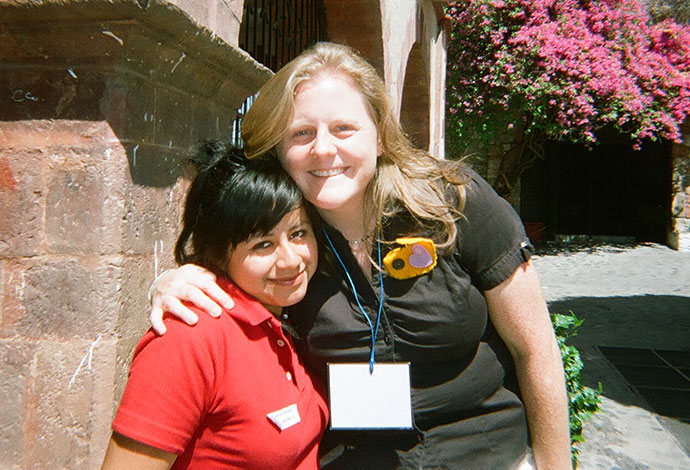
By the time she was in college, Hultquist knew she wanted to help people, but didn’t yet know how. Her path was illuminated while working at a substance abuse recovery center for teenagers. “I thought I was going to be a doctor; that experience changed my life,” she muses. From that point on, Hultquist both participated in and formed a number of organizations that had direct impact on young people, particularly women, who were at risk and in need.
Also in college, Hultquist discovered a love for Latin American culture. She spent time studying in Mexico, Argentina, Chile and Paraguay before graduating as a Morehead Scholar with a B.A. in Latin American Studies from the University of North Carolina. After college, she knew she wanted to continue pursuing her interest in Latin America, while working on programs that provide direct service to individuals. At the same time, Hultquist wanted to ensure that her work would affect social change.
She dove into a multitude of roles. She worked at the Religious Coalition for Reproductive Choice, Ashoka’s Youth Venture, and for nine years was the Executive Director of Passages Northwest, a Seattle non-profit that develops courage and leadership in girls through the outdoors and the arts. Hultquist also received a master’s degree in Not-for-Profit Leadership from Seattle University.
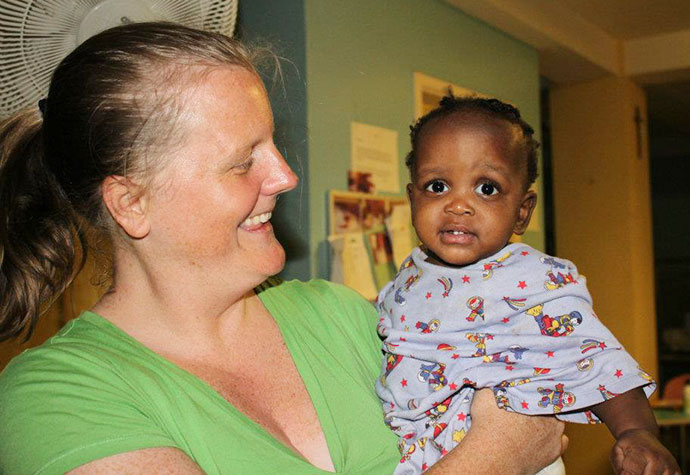 In 2010, Hultquist was itching for a new opportunity. It’s easy to see what was appealing about NPH USA. Hultquist was looking for an organization with a global focus, where she could utilize her Spanish, continue working on issues of social justice and build stronger relationships with people. NPH USA fit the bill. NPH has been around for 60 years and is working in nine countries in Latin America and the Caribbean. There they have built permanent homes for upwards of 3,500 orphaned children and established a holistic network of educational and health resources to serve these children and others in the surrounding communities.
In 2010, Hultquist was itching for a new opportunity. It’s easy to see what was appealing about NPH USA. Hultquist was looking for an organization with a global focus, where she could utilize her Spanish, continue working on issues of social justice and build stronger relationships with people. NPH USA fit the bill. NPH has been around for 60 years and is working in nine countries in Latin America and the Caribbean. There they have built permanent homes for upwards of 3,500 orphaned children and established a holistic network of educational and health resources to serve these children and others in the surrounding communities.
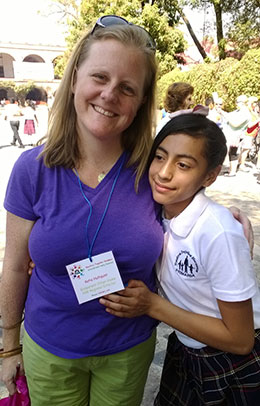 Though NPH USA had a chapter in Washington state for over twenty years when Hultquist began working there, it remained under the radar. Hultquist understood the benefits of being a part of Seattle’s global community and focused on promoting the organization locally through partnerships. Over the course of five years, Hultquist and her team increased the Northwest region’s revenue by 75% which has allowed NPH to increase their capacity in Latin America. With events such as the Haiti earthquake and the closure of many state-run homes in Honduras and other countries, there remains a strong need for NPH’s schools and facilities. NPH USA has also increased its visibility in the Northwest through stories in The Seattle Times and other media outlets, by sponsoring events with Global Washington, and launching a Seattle-based Leadership Institute for NPH’s top university students from Central America and Haiti.
Though NPH USA had a chapter in Washington state for over twenty years when Hultquist began working there, it remained under the radar. Hultquist understood the benefits of being a part of Seattle’s global community and focused on promoting the organization locally through partnerships. Over the course of five years, Hultquist and her team increased the Northwest region’s revenue by 75% which has allowed NPH to increase their capacity in Latin America. With events such as the Haiti earthquake and the closure of many state-run homes in Honduras and other countries, there remains a strong need for NPH’s schools and facilities. NPH USA has also increased its visibility in the Northwest through stories in The Seattle Times and other media outlets, by sponsoring events with Global Washington, and launching a Seattle-based Leadership Institute for NPH’s top university students from Central America and Haiti.
Not only is Hultquist invested in promoting NPH, she is also an active participant in many of their programs. She travels internationally a few times each year and has had the pleasure of visiting four of the nine homes. Additionally, she enjoys mentoring the young leaders in the NPH International Leadership Institute, and loves being a sponsor to one Honduran student. “The best thing I can do is be an ambassador for NPH and our kids here,” says Hultquist.
It seems NPH USA could not have chosen anyone better for the job. Hultquist’s passion for her position is apparent when she describes youth leadership initiatives, and the opportunity to create lasting social change through NPH programs.
Hultquist wants to eventually visit all nine NPH homes, and continue broadening partnerships within the Seattle region. “I’ve thought a lot about how I can be most effective at making a difference on the issues that I care about,” she says. That careful thought is why Katie Hultquist is exceptional at what she does, and it will no doubt lead her to success tackling some of today’s most critical global issues.
Back to Top
Member Recognition
Literacy Bridge
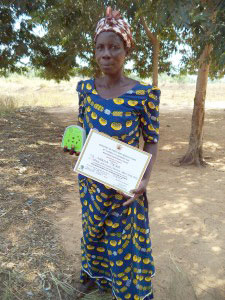
In 2012, two Talking Book users won Best Farmer Awards. In 2013, three Talking Book users won awards. It was recently announced that six out of eight farming awards for 2014 went to Talking Book users. Congratulations to GlobalWA member Literacy Bridge! Learn more.
Cascade Designs
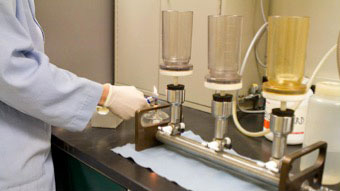
Credit: MSR
Cascade Designs (owners of the Mountain Safety Research brand) graced the pages of Sports Illustrated this month. The MSR Water Lab in Seattle is advancing water filtration and improving health around the world. Read more.
Back to Top
Welcome New Members
Please welcome our newest Global Washington members. Take a moment to familiarize yourself with their work and consider opportunities for support and collaboration!
Atlas Level
Medical Teams International: Providing medical and dental care, humanitarian aid and holistic development programs to people in need regardless of religion, nationality, sex or race. MTI responds to disasters around the world—and here at home—by sending volunteer medical professionals and supplies, mobilizing long-term health promotion initiatives, and collaborating with established partners within communities. www.medicalteams.org
Cascades Level
501 Commons: Boosting the capacity of nonprofit organizations to thrive over the long term and effectively serve their communities, 501 Commons’ programs and services support organizations so they have what they need to make a world of difference. www.501commons.org
Awamaki: Awamaki helps women’s associations in rural Peru start and run their own businesses creating high-quality artisan products and cultural experiences. awamaki.org
Greater Seattle Business Association: Combining business development, leadership and social action to expand economic opportunities for the Lesbian, Gay, Bisexual and Transgender community and those who support equality for all, GSBA envisions a vibrant global economy strengthened through the full participation of diverse local communities. www.thegsba.org
IE3 Global: IE3 Global provides high-quality study abroad, internship, research, exchange, and faculty-led programs to students of partner campuses throughout the Northwest and beyond. Combining the former Oregon Abroad and IE3 Global Internships under one banner, IE3 Global administers programs in over 50 nations across the world. www.ie3global.org
Tasveer: Tasveer’s mission is to curate thought-provoking artistic work of South Asians through films, forums, visual art, and performances that engage and empower the community. tasveer.org
Trinity Parish Episcopal Church: Trinity Parish is Seattle’s Downtown Episcopal Church. www.trinityseattle.org
Back to Top
Member Events
January 16: University of Washington Jackson School – Center for Global Studies // Gender and Political Violence
January 20: FSG // Webinar: Why Community Engagement and Process Matter in Collective Impact
January 22: WGHA // Discovery Series Lecture: Plague, SARS and Influenza: What have we learned?
February 12: World Trade Center Seattle // From the CEO’s Perspective Series: Leading Millennials
February 20 – 23: Community Colleges for International Development // CCID 39th Annual Conference
Back to Top
Careers
Highlighted Paid Positions
Director, Individual Philanthropy – Major Gifts – Grameen Foundation
Vice President, International Development – PATH
Chief Global Officer – SightLife
Highlighted Volunteer Positions
Volunteer – Adara Group
Intern – Awamaki
Intern – Knowledge for People
For more jobs and resources, visit https://globalwa.org/resources/careers-in-development/
Back to Top
GlobalWA Events
January 22: Networking Happy Hour with Friends of GlobalWA and Humanosphere
February 5: Women Leaders in Philanthropy
February 18: New Member Orientation
February 19: Executive Director Roundtable
Back to Top
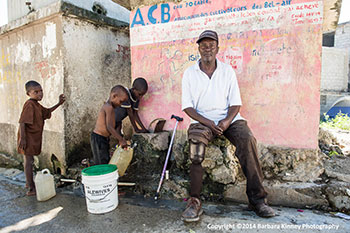 January 12 marked five years since a magnitude-7.0 earthquake devastated Haiti. NGOs that work in Haiti used the anniversary as an opportunity to reflect on the disaster. While various organizations issued statements vowing to continue helping the Haitian people, many news outlets released grim reports regarding the island-nation’s recovery efforts.
January 12 marked five years since a magnitude-7.0 earthquake devastated Haiti. NGOs that work in Haiti used the anniversary as an opportunity to reflect on the disaster. While various organizations issued statements vowing to continue helping the Haitian people, many news outlets released grim reports regarding the island-nation’s recovery efforts.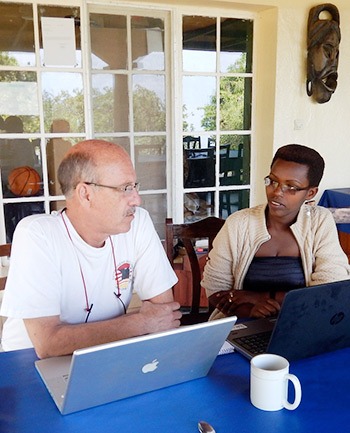
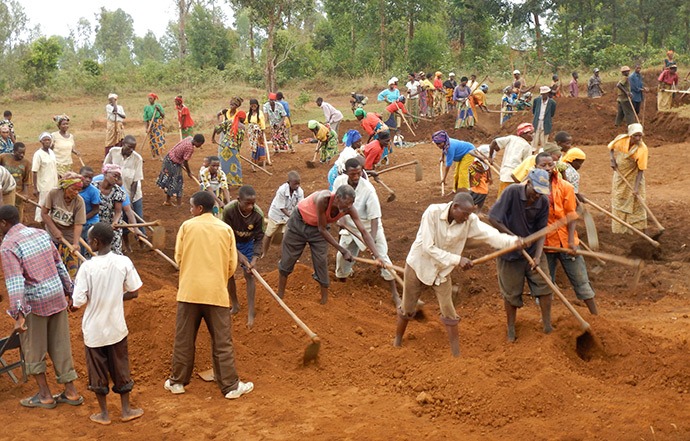


 For those who have had the opportunity to see the work of
For those who have had the opportunity to see the work of  Amongst this in Mohammadpur, however, are countless laughing children running through crowds like streaks of light, many of whom are on their way to Spreeha.
Amongst this in Mohammadpur, however, are countless laughing children running through crowds like streaks of light, many of whom are on their way to Spreeha. Spreeha also offers afterschool classes to enrolled students. Many of these classes are taught by older students who are moving into their Higher Secondary Certificate curriculum (the equivalent of eleventh and twelfth grade).
Spreeha also offers afterschool classes to enrolled students. Many of these classes are taught by older students who are moving into their Higher Secondary Certificate curriculum (the equivalent of eleventh and twelfth grade). Spreeha has worked hard to integrate itself into the community. Part of its approach has been to model itself after the Lean Startup Method that emphasizes flexibility and adaptability, which are essential to development work of this nature. After witnessing children race each other up Spreeha’s front steps each day, it is obvious that the organization has cultivated a safe and positive environment for community members.
Spreeha has worked hard to integrate itself into the community. Part of its approach has been to model itself after the Lean Startup Method that emphasizes flexibility and adaptability, which are essential to development work of this nature. After witnessing children race each other up Spreeha’s front steps each day, it is obvious that the organization has cultivated a safe and positive environment for community members. To spend time with the students of Spreeha is, to put simply, inspiring. Despite the fact that most of them have only known extreme poverty, their dreams go far beyond those of their circumstances. When asking a group of girls about their career goals, we heard: doctor, teacher, engineer, photojournalist, police officer and politician.
To spend time with the students of Spreeha is, to put simply, inspiring. Despite the fact that most of them have only known extreme poverty, their dreams go far beyond those of their circumstances. When asking a group of girls about their career goals, we heard: doctor, teacher, engineer, photojournalist, police officer and politician.



 In 2010, Hultquist was itching for a new opportunity. It’s easy to see what was appealing about NPH USA. Hultquist was looking for an organization with a global focus, where she could utilize her Spanish, continue working on issues of social justice and build stronger relationships with people. NPH USA fit the bill. NPH has been around for 60 years and is working in nine countries in Latin America and the Caribbean. There they have built permanent homes for upwards of 3,500 orphaned children and established a holistic network of educational and health resources to serve these children and others in the surrounding communities.
In 2010, Hultquist was itching for a new opportunity. It’s easy to see what was appealing about NPH USA. Hultquist was looking for an organization with a global focus, where she could utilize her Spanish, continue working on issues of social justice and build stronger relationships with people. NPH USA fit the bill. NPH has been around for 60 years and is working in nine countries in Latin America and the Caribbean. There they have built permanent homes for upwards of 3,500 orphaned children and established a holistic network of educational and health resources to serve these children and others in the surrounding communities. Though NPH USA had a chapter in Washington state for over twenty years when Hultquist began working there, it remained under the radar. Hultquist understood the benefits of being a part of Seattle’s global community and focused on promoting the organization locally through partnerships. Over the course of five years, Hultquist and her team increased the Northwest region’s revenue by 75% which has allowed NPH to increase their capacity in Latin America. With events such as the Haiti earthquake and the closure of many state-run homes in Honduras and other countries, there remains a strong need for NPH’s schools and facilities. NPH USA has also increased its visibility in the Northwest through stories in The Seattle Times and other media outlets, by sponsoring events with Global Washington, and launching a Seattle-based Leadership Institute for NPH’s top university students from Central America and Haiti.
Though NPH USA had a chapter in Washington state for over twenty years when Hultquist began working there, it remained under the radar. Hultquist understood the benefits of being a part of Seattle’s global community and focused on promoting the organization locally through partnerships. Over the course of five years, Hultquist and her team increased the Northwest region’s revenue by 75% which has allowed NPH to increase their capacity in Latin America. With events such as the Haiti earthquake and the closure of many state-run homes in Honduras and other countries, there remains a strong need for NPH’s schools and facilities. NPH USA has also increased its visibility in the Northwest through stories in The Seattle Times and other media outlets, by sponsoring events with Global Washington, and launching a Seattle-based Leadership Institute for NPH’s top university students from Central America and Haiti.

